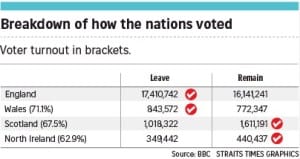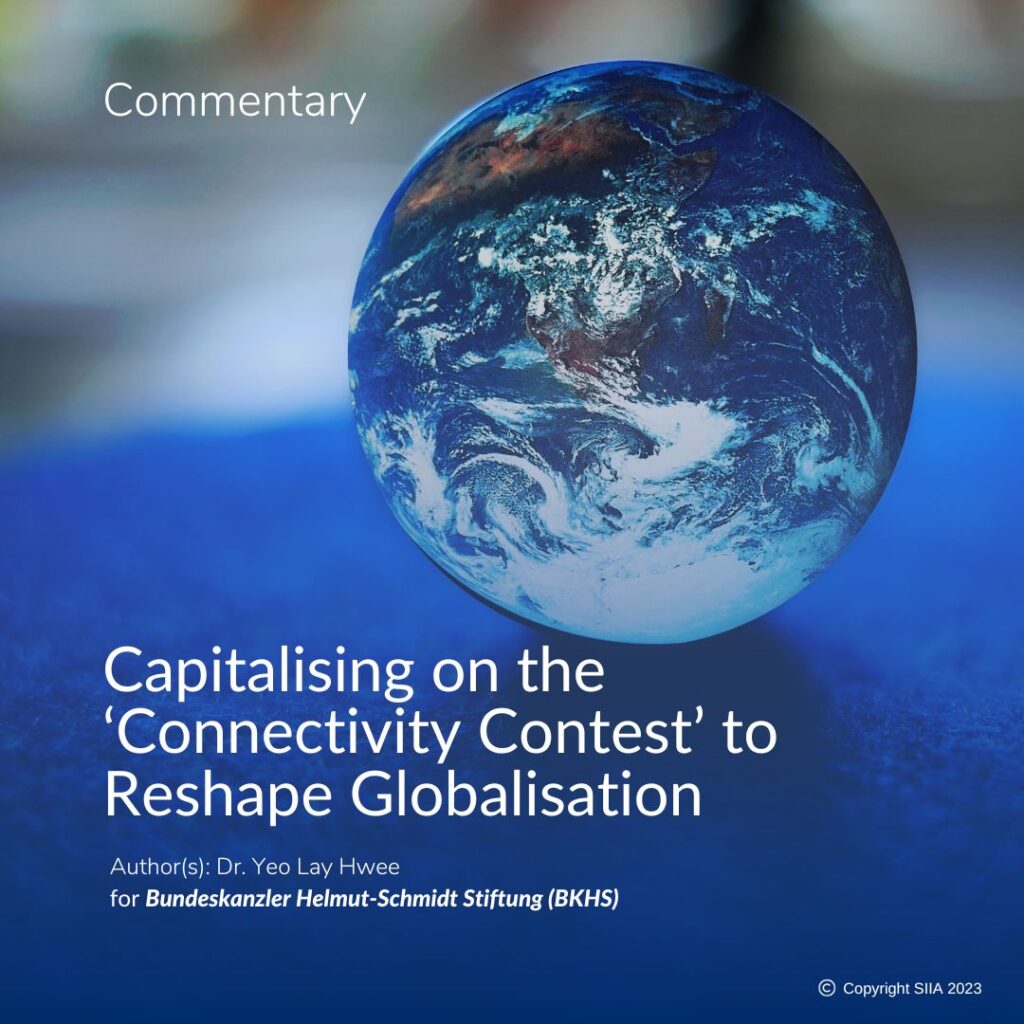The British people turned out in great numbers to vote on Thursday for the “In-Out” referendum. The final result is in favour of Brexit, with 51.9 per cent voting to leave the European Union and 48.1 per cent voting to stay.
This is the second time British voters have been asked to vote on UK membership of the EU. The UK joined the EU (then the European Economic Community of six members – Germany, France, Italy, Belgium, Netherlands and Luxembourg) in 1973, together with Ireland and Denmark. The first referendum was held in 1975, and then the result was 67 per cent for and 33 per cent against.
So what are some of the immediate repercussions and potential implications of the Brexit vote?

A DIVIDED UK
While Scotland voted to stay in the EU, and Northern Ireland, too (although not overwhelmingly so compared to Scotland), most of England (except London) voted to leave. Wales was also primarily in the Leave camp. With such division, the question is whether Scotland would indeed carry out its “threat” to have another independence referendum to leave the UK and join the EU.
And what about Northern Ireland? Would Northern Ireland also harbour thoughts on leaving the UK and enter into some sort of arrangement with its immediate neighbour – the Republic of Ireland? First Minister Martin McGuiness has already issued a call minutes after the Brexit result for a poll for United Ireland.
The division is not just across the nations, but also reflects a divide between London and the rest of England, particularly the rural and the de-industrialised parts of England. As BBC noted, while London has voted to stay in the EU by around 60 per cent to 40 per cent, no other region of England has voted in favour of remaining.
This raises the questions of how the political class in the UK will govern the country, especially when they themselves are also divided. Both mainstream political parties – the Conservative and Labour Parties – have MPs and members for and against leaving. The UKIP (UK Independence Party) appears to be the clear winner in the Brexit vote, but no one believes UKIP can “unite” the country.
MARKET VOLATILITY AMIDST UNCERTAINTIES
As the results started to roll in, the pound plunged on the first sign that the Leave campaign was leading. With the final result of Brexit, the pound dropped to its lowest since 1985. While one can expect the pound to rebound and stabilise down the road, the uncertainties over the future of UK’s relations with the EU will continue to be a constant irritant and, hence, the market will remain volatile for some time.
The political uncertainties in the UK will also contribute to the market volatility and affect business sentiments. New business investments will likely be put on hold, and concerns about the future of London as the key financial centre would no doubt weigh on investors and businesses.
SPREAD OF EUROSCEPTICISM AND BOOST TO FAR-RIGHT AND FRINGE PARTIES
The campaigning in the UK on the referendum with its toxicity and negative narratives directed towards the EU would add to the spread of euroscepticism and give more oxygen to anti-establishment fringe parties across the EU.
The EU has already suffered great damage in its reputation in the eyes of its citizens because of the way various crises (from the sovereign debt crisis to the migrants/refugee crisis) have been handled. It is feared that Brexit would lead to a clamour for referendum by other EU member states leading to what analysts see as disintegration of the EU.
However, there is also the hope that Brexit would provide the shock for the EU to push through reforms resulting in a different EU that is more pragmatic and, at the same time, more coherent.
‘FATE’ OF 3 MILLION EU CITIZENS IN UK AND 1.8 TO 2 MILLION UK CITIZENS IN EU STATES
EU citizens currently working or living in the UK, and British citizens in other EU member states would be anxious as to how the Brexit vote is going to affect them personally.
But a far more important question is how the potential departure of many of the EU citizens working in the UK and the return of UK pensioners and retirees living in other parts of the EU will affect public finances, the economy and the job market. These are just some potential repercussions of Brexit. The broader and full implications of Brexit will take some time to sink in as both UK and the EU prepare for some long-drawn negotiations on their new relationship.
If the negotiations are acrimonious and terms set for the UK are unduly harsh, the tensions would, in turn, have broader geopolitical implications for UK, Europe and its transatlantic partnership.
With the UK break-up, how would the unity of Nato be affected and how would UK and EU relate to the US? All these are questions that, in turn, would have an impact on the broader regional and global landscape.
ABOUT THE AUTHOR:
Yeo Lay Hwee is director of the European Union Centre in Singapore and Senior Research Fellow at the Singapore Institute of International Affairs. This commentary was originally published online on The Straits Times website on 24 June 2016.




